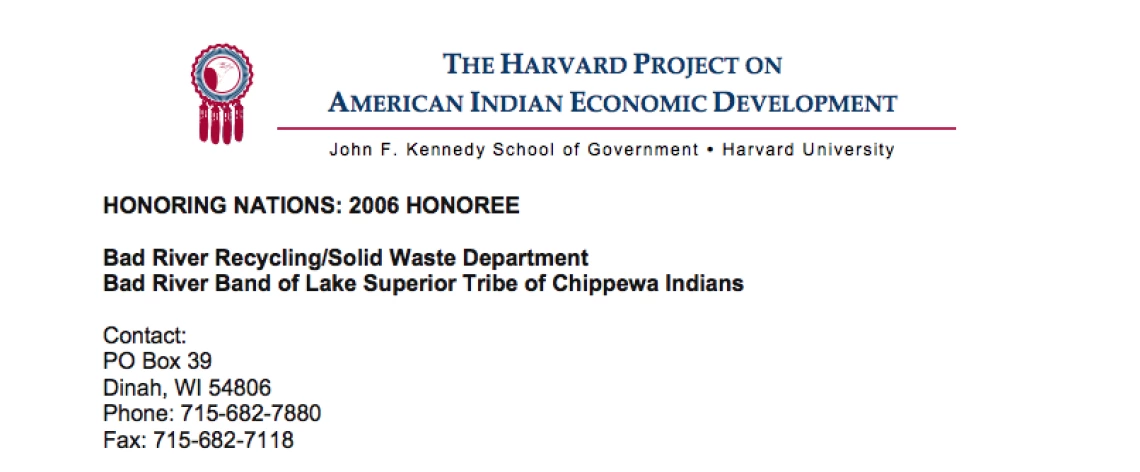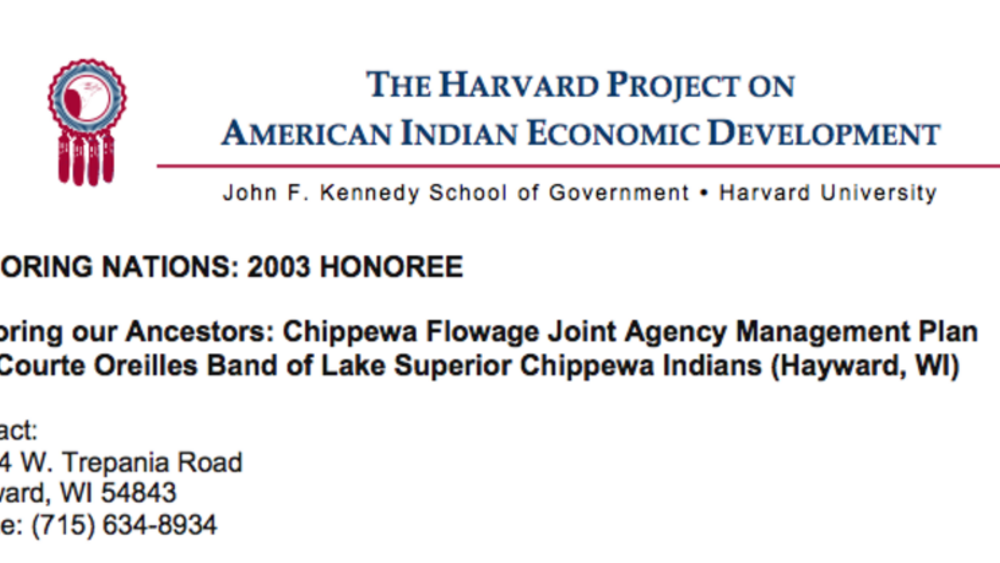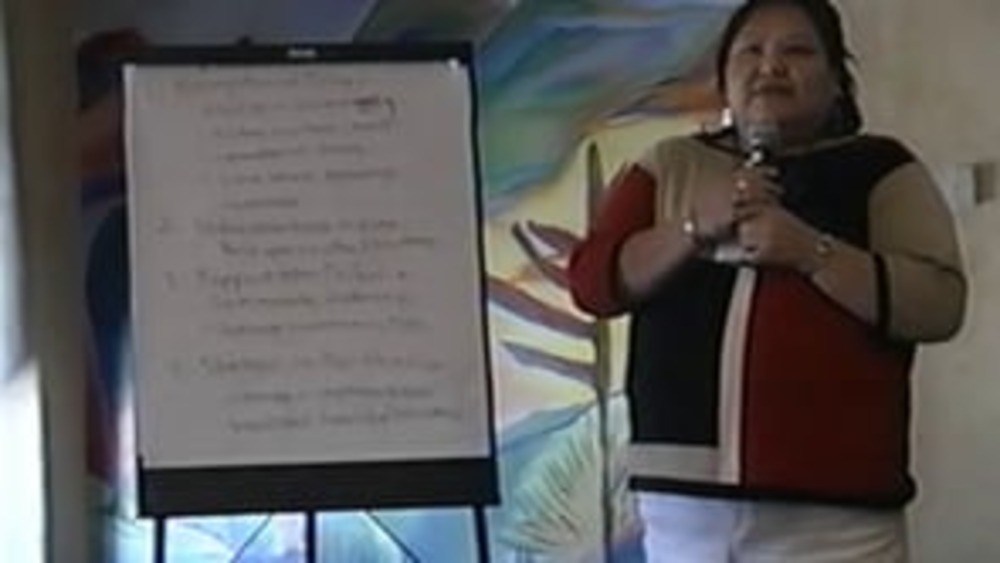The Bad River Recycling/Solid Waste Department created environmentally sound practices of managing and disposing of waste generated on the reservation, ending cycles of harm to tribal citizens, lands, and water. Historically, waste was not only hazardous, but noticeable and abundant on reservation lands despite cultural creation and migration stories stressing environmental stewardship. Now, through education, incentives, and new waste management systems, the Bad River Band citizens boast a clean, safe, and green environment.
Additional Information
"Bad River Recycling/Solid Waste Department." Honoring Nations: 2006 Honoree. Harvard Project on American Indian Economic Development, John F. Kennedy School of Government, Harvard University. Cambridge, Massachusetts. 2007. Report.



